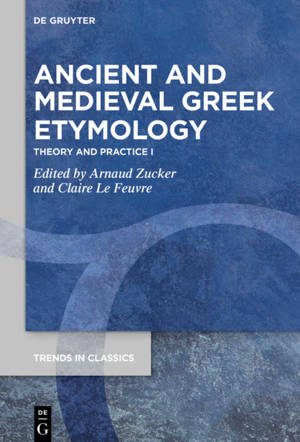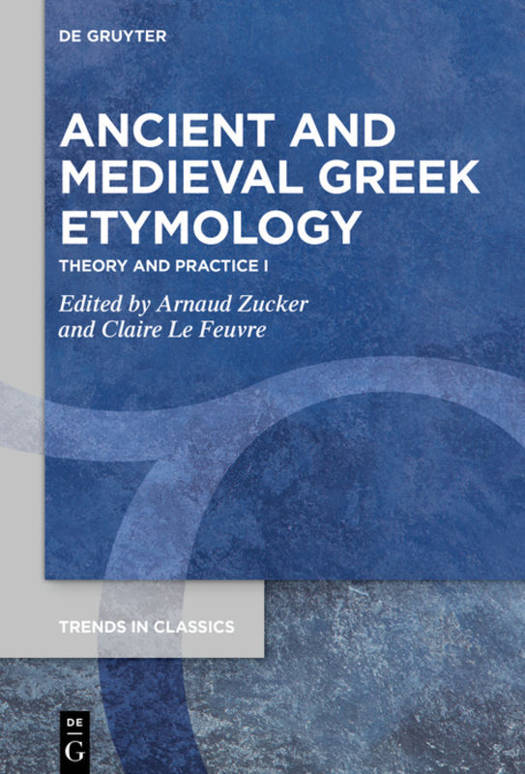
- Afhalen na 1 uur in een winkel met voorraad
- Gratis thuislevering in België vanaf € 30
- Ruim aanbod met 7 miljoen producten
- Afhalen na 1 uur in een winkel met voorraad
- Gratis thuislevering in België vanaf € 30
- Ruim aanbod met 7 miljoen producten
Zoeken
Ancient and Medieval Greek Etymology
Theory and Practice I
€ 281,95
+ 563 punten
Omschrijving
This volume on Greek synchronic etymology offers a set of papers evidencing the cultural significance of etymological commitment in ancient and medieval literature. The four sections illustrate the variety of approaches of the same object, which for Greek writers was much more than a technical way of studying language. Contributions focus on the functions of etymology as they were intended by the authors according to their own aims. (1) "Philosophical issues" addresses the theory of etymology and its explanatory power, especially in Plato and in Neoplatonism. (2) "Linguistic issues" discusses various etymologizing techniques and the status of etymology, which was criticized and openly rejected by some authors. (3) "Poetical practices of etymology" investigates the ubiquitous presence of etymological reflections in learned poetry, whatever the genre, didactic, aetiological or epic. (4) "Etymology and word-plays" addresses the vexed question of the limit between a mere pun and a real etymological explanation, which is more than once difficult to establish. The wide range of genres and authors and the interplay between theoretical reflection and applied practice shows clearly the importance of etymology in Greek thought.
Specificaties
Betrokkenen
- Uitgeverij:
Inhoud
- Aantal bladzijden:
- 350
- Taal:
- Engels
- Reeks:
- Reeksnummer:
- nr. 111
Eigenschappen
- Productcode (EAN):
- 9783110714852
- Verschijningsdatum:
- 18/01/2021
- Uitvoering:
- Hardcover
- Formaat:
- Genaaid
- Afmetingen:
- 152 mm x 231 mm
- Gewicht:
- 657 g

Alleen bij Standaard Boekhandel
+ 563 punten op je klantenkaart van Standaard Boekhandel
Beoordelingen
We publiceren alleen reviews die voldoen aan de voorwaarden voor reviews. Bekijk onze voorwaarden voor reviews.






